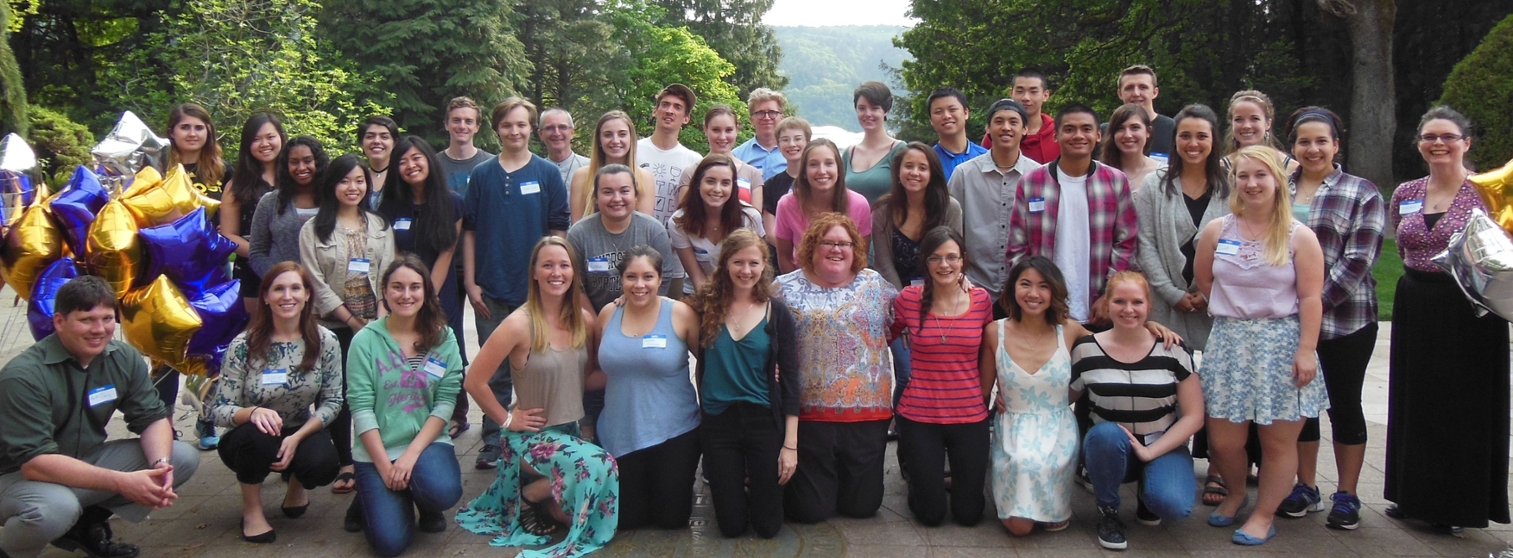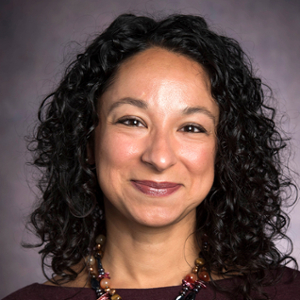
 Current Position: Associate Director of Alumni Engagement
Current Position: Associate Director of Alumni EngagementMy father immigrated to the United States from the former Yugoslavia in 1970 as a communist refugee. He became certified as an industrial electrician and was a blue collar worker who often felt underprivileged. My mother and her siblings were the first American-born generation in her Mexican family. After graduating high school, she completed technical training to work as secretary until 1980. Being the offspring of an immigrant father who left his life behind to forge a path of opportunity for his yet unborn children created a lot of pressure to succeed. Our father instilled a strong work ethic for me and my three siblings. My mother would have soared in college if presented the chance. Excelling in school and getting ourselves into college was an expectation even though my parents could not financially assist our goals in attaining higher education. Ultimately my success was a combination of having a supportive home and academic environment, along with my own diligence to apply for and maintain my own financial aid. I read and applied for every scholarship I was eligible for, which was a significant effort in 1992-3 when the internet use by wider society had not yet occurred. Success then – and now – takes a bit of grit and resilience in addition to doing well in school and creating goals.
My brother was the first to attend college two years ahead of me and selected UP as his starting point on his way toward becoming a physician. I was pre-med as well and after sophomore year realized although I enjoyed science, there were career options that better suited my personality. As is common with first-generation students, my parents encouraged us to strive for careers that in their experience were traditionally lucrative, stable, and always in demand. It took a long time for me to feel like I wasn't’t disappointing my parents, myself, and my scholarship donors by choosing a different career path. I continued to do well in my undergraduate studies, understanding that my parents offered advice they knew to be true within their own awareness. I truly overcame this challenge when I became a mother myself and have fostered a different outlook regarding purpose during and after attending college for my two teenaged sons.
Challenges are easier to deal with when a support network is established prior to hardship occurring. Become involved on campus to create a diverse community from your own generation who are facing similar challenges. It’s hard to call home for support when your parents have not experienced campus life and are unfamiliar with unique resources available to you at UP. Make an effort to be kind and get to know people in your field of study, dormitory, hobbies and social interest groups. Try to attend gatherings that may be a bit out of your usual comfort zone…you might surprise yourself at the lifelong relationships you’ll build!
My mentor was Mr. Kenneth Ford, the founder of the Ford Family Foundation. I was fortunate enough to be a selected as a Ford Scholar recipient in 1994. Mr. Ford could not afford college for himself, so he founded the scholarship program to assist students who otherwise would find it impossible, or at least very difficult, to obtain a college degree without financial assistance. He was an example of ingenuity, hard work, and limitless philanthropy. He encouraged scholarship recipients to be tenacious while taking time to “smell the roses” – to find balance while doing one’s best and establishing fellowship. Mr. Ford wisely reminded us that scholarship donors are not offering recipients hand-outs, rather they’re investing in others to use their education toward building vitality within their communities.
My college experience was life-changing. I would not have made the personal or professional contacts I did had I not attended the University of Portland. Most importantly, I learned that continued success follows varied attempts at something and fundamentally requires an honest evaluation of one’s ambition.
Note: ask Marija about her role as co-chair of the Latinx Employees Group at UP!
University of Portland
5000 N. Willamette Blvd.,
Portland, Oregon 97203-5798
503.943.8000
This website uses cookies to track information for analytics purposes. You can view the full University of Portland privacy policy for more information.
